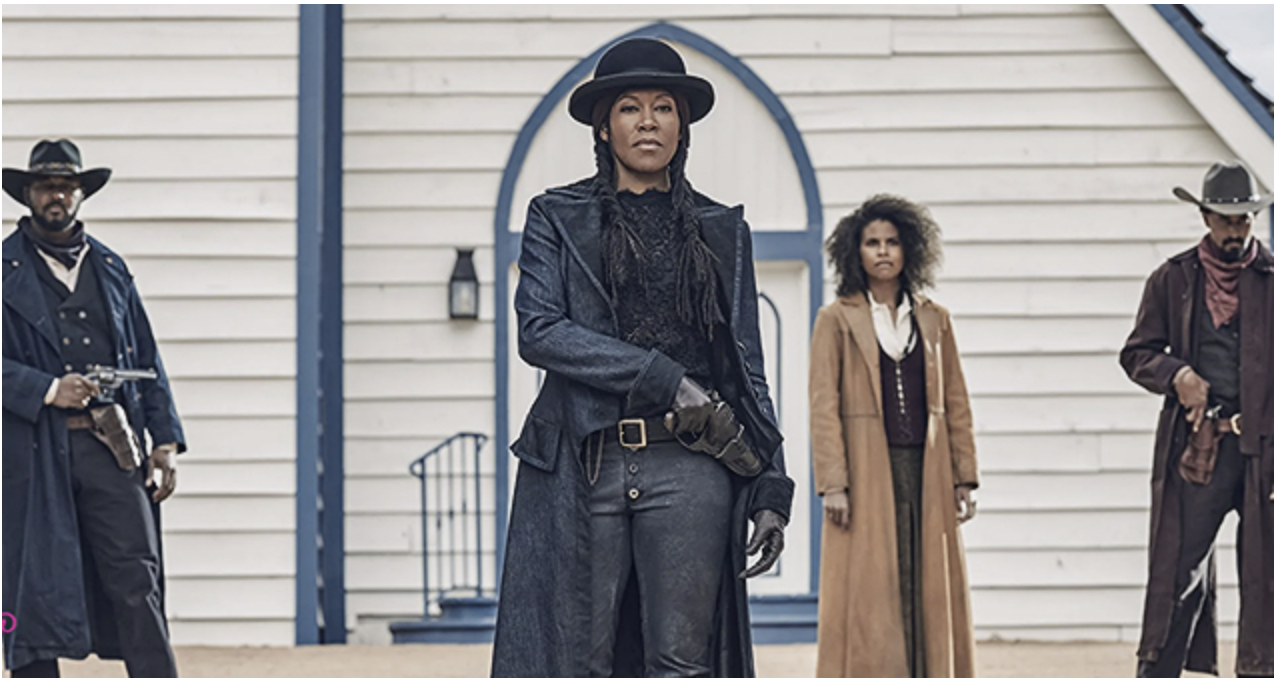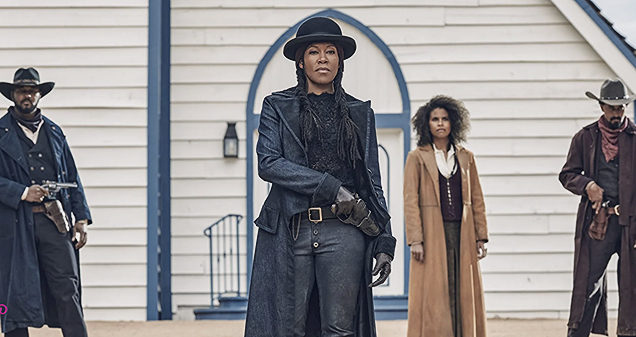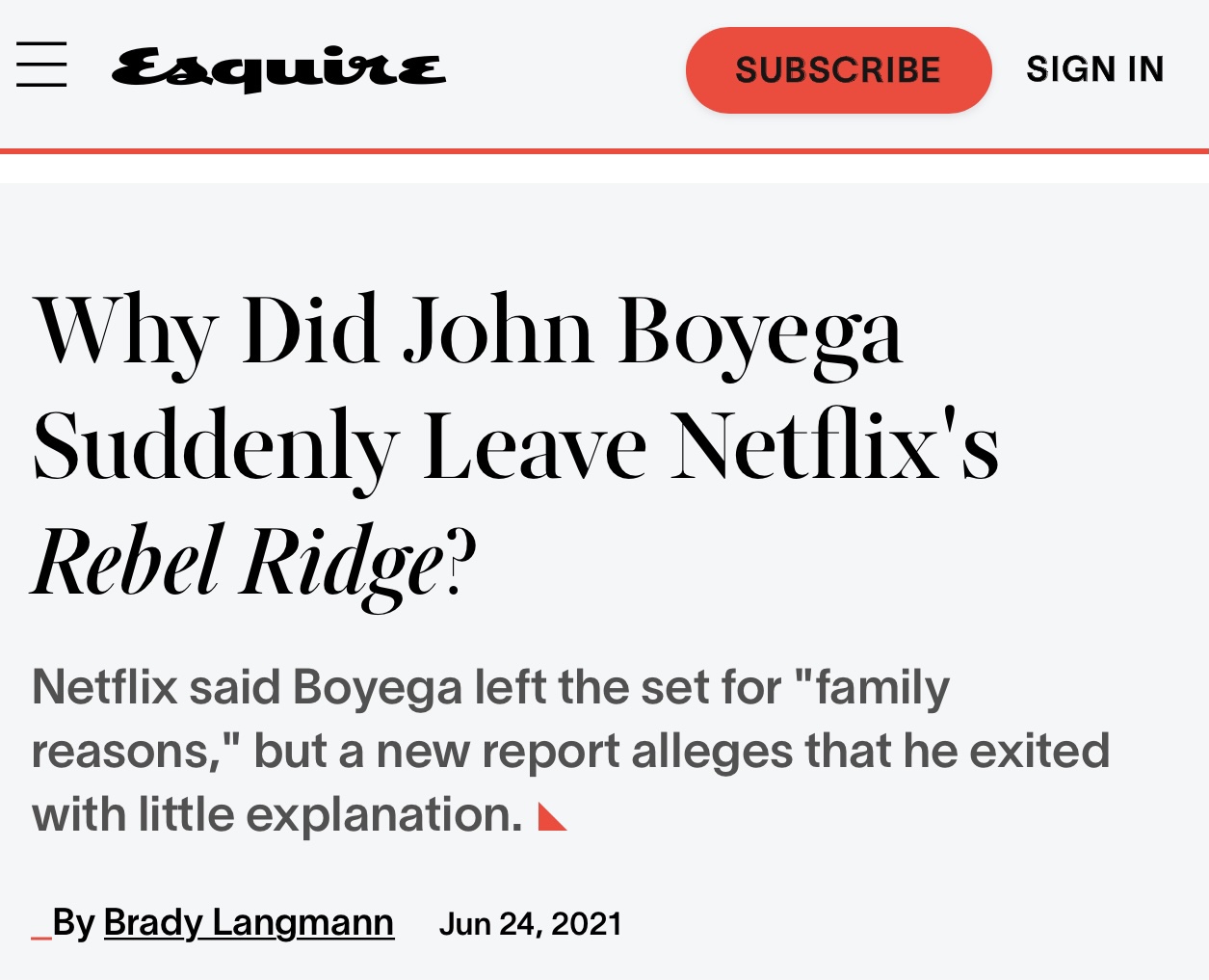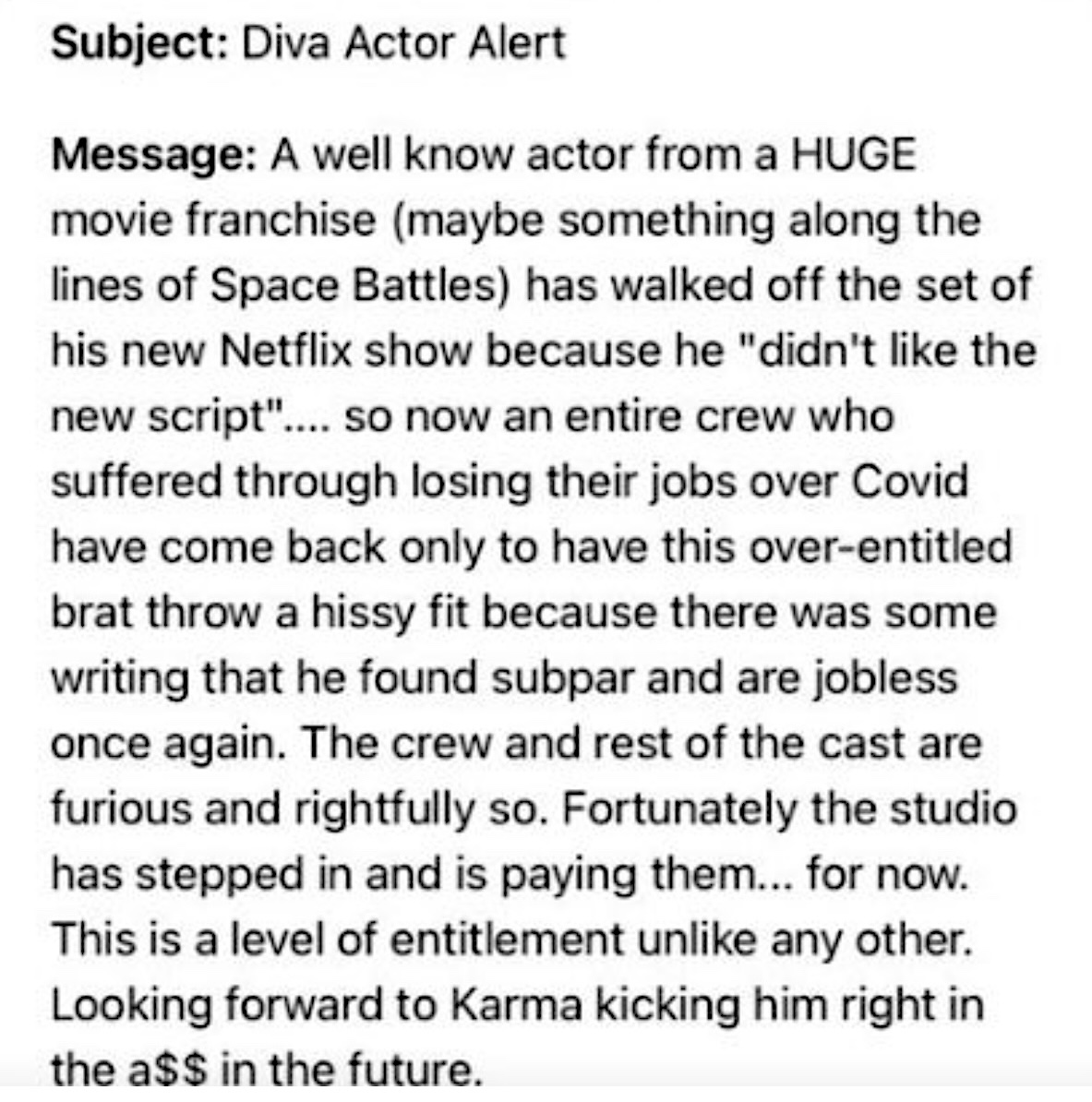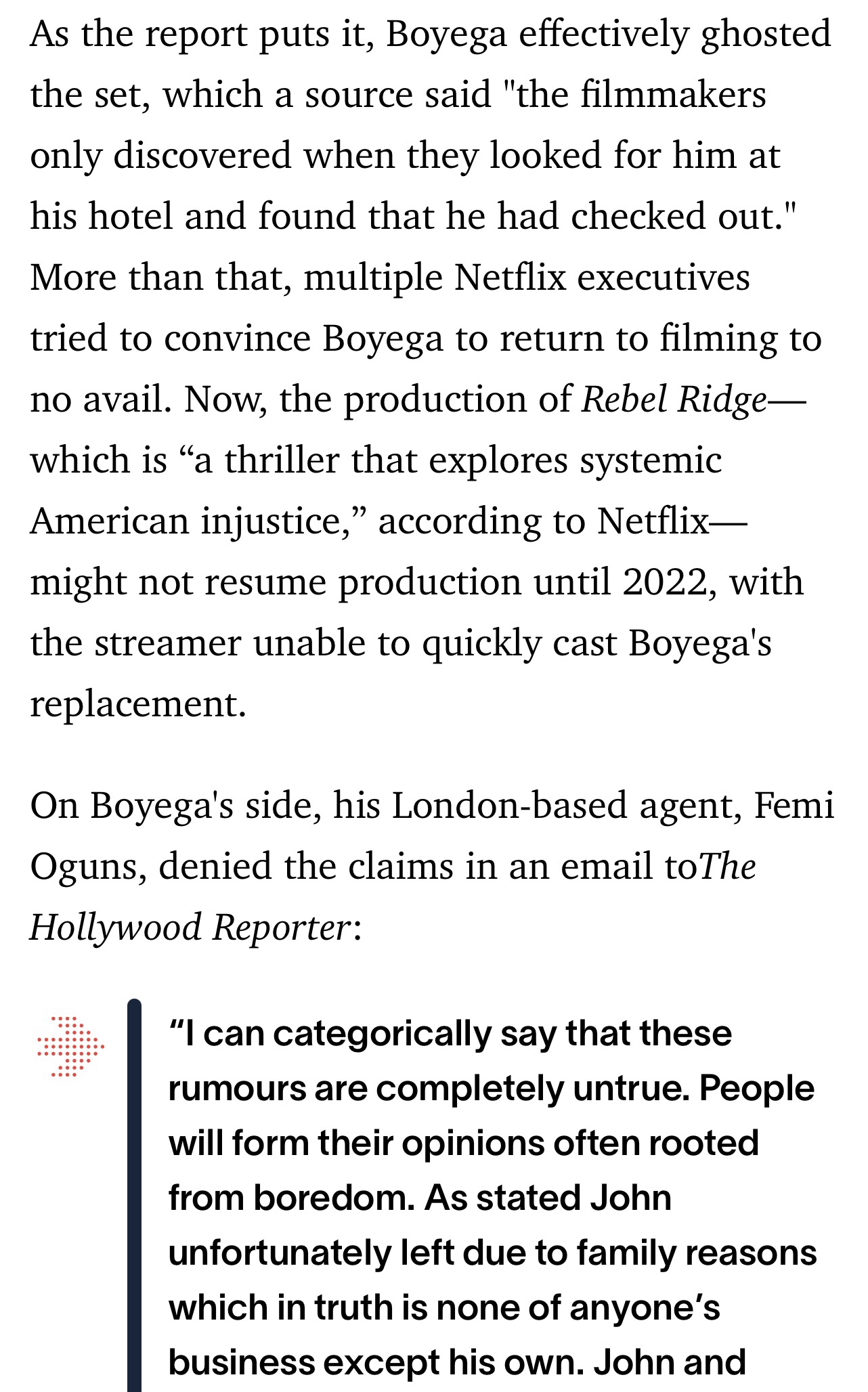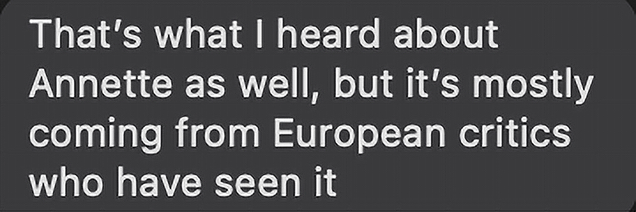World of Reel‘s Jordan Ruimy is polling critics on the five best films of 2021.
HE’s favorite film of the year thus far, hands down, is Thomas Anders Jensen’s Riders of Justice: A truly original stand-out with a deliciously skewed, deadpan sense of humor. On 5.21 I insisted that violence wasn’t funny or certainly couldn’t be sold as such, and I was dead wrong. Riders’ dry, low-key comic tone is really something. I wasn’t expecting anything as original feeling as this. It’s quite the discovery. I’m actually intending to watch it again this weekend.
My second favorite is Jasmila Zbanić‘s Quo Vadis, Aida?, which played at last year’s Venice and Toronto festivals before opening stateside on 3.15.21. It’s a blistering, horrifying, you-are-there account of the 1995 Srebrenica massacre — 8000 Bosnian men and boys murdered in cold blood by Serbian troops under the command of Ratko Mladic. For me it ranks alongside other Bosnian brutality-of-war dramas like In The Land of Blood and Honey, Welcome to Sarajevo and No Man’s Land. Not a suspense piece or a classic war drama but a mother’s perspective saga that asks “who if anyone will survive the coming massacre?” You can feel it coming from around the corner. Devastating.
Third is Simon Stone‘s The Dig (Netflix, 1.15.21). I called this tale of the famous Sutton Hoo dig of 1939, which uncovered a sixth-century Anglo Saxon burial site, generally pleasing as far as this kind of modest and unassuming British period drama goes. I loved Ralph Fiennes‘ performance as real-life archeological excavator Basil Brown — his gutty working-class accent is note perfect, but the performance is in his eyes…at various times determined, defiant, sad, compassionate. And Carey Mulligan‘s Edith Pretty…talk about a performance at once strong, heartbreaking (as in sadly resigned) and resilient. I admired it despite an idiotic subplot about a married Lily James wanting to schtup the daylights out of a young, good-looking fellow, Rory (Johnny Flynn), whom she meets on the dig.
HE’s #4 is Phillip Noyce‘s Above Suspicion. On 4.1 I called it a jug of classic, grade-A moonshine — a brilliant, tautly paced, perfectly written action thriller (i.e., rednecks, drug deals, criminals, lawmen, murder, car chases, bank robberies) that plays like an emotional tragedy, and is boosted by an ace-level performance from Emilia Clarke. Most people would define ‘redneck film’ as escapist trash in the Burt Reynolds mode, but there have been a small handful that have portrayed rural boondock types and their tough situations in ways that are top-tier and real-deal. My favorites in this realm are John Boorman‘s Deliverance, Billy Bob Thornton‘s Sling Blade, and Lamont Johnson‘s The Last American Hero. Noyce’s entry is the absolute, dollars-to-donuts equal of these, or at least a close relation with a similar straight-cards, no-bullshit attitude. And it revives the strategy of William Holden‘s narration of Sunset Boulevard.
My fifth favorite is, despite its financial failure, Jon Chu and Lin-Manuel Miranda‘s In The Heights. On 6.8 I called it “good, grade-A stuff — engaging, open-hearted, snappy, well-composed, catchy tunes, appealing performances, razor-sharp cutting. One character-driven vignette after another. Dreams, hopes, identity, hip-hop, neighborhood vibes, community, self-respect…all of it earnestly feel-good. There’s no fault in any of it except for the minor fact that I was quietly groaning. Okay, not “groaning” but half-in and half-out. Admiring but disengaged. There isn’t a single moment in which I didn’t appreciate the effort, the professionalism, the heart factor, Alice Brooks‘ vibrant cinematography…all of it is fine and commendable, and I must have checked the time code 10 or 12 times, minimum.”



